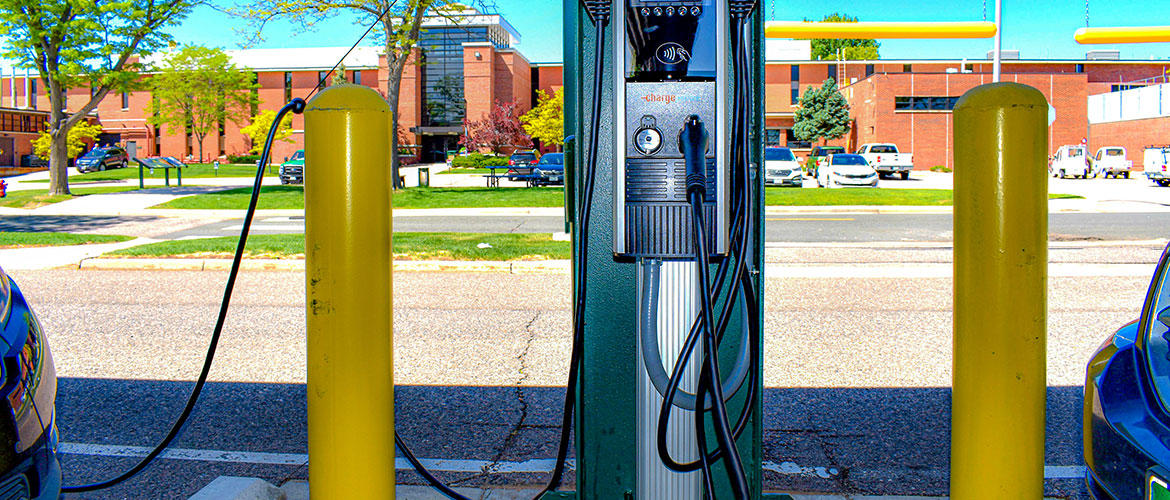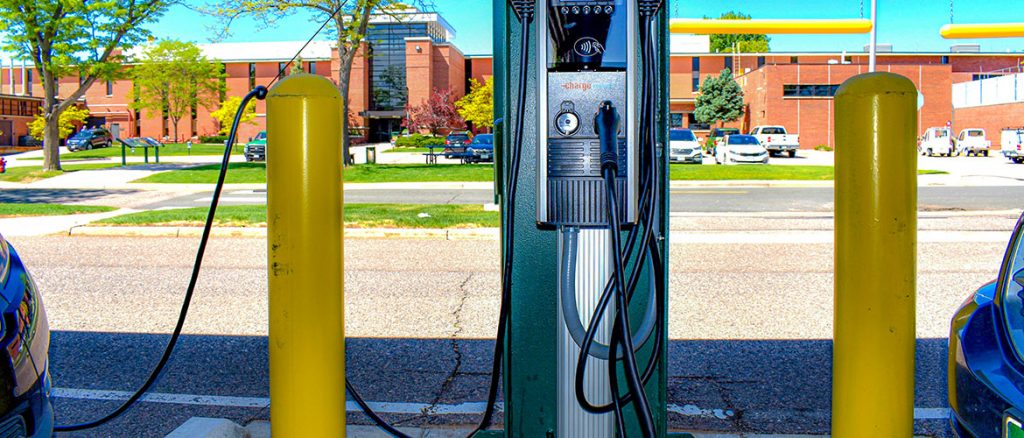
Image courtesy of GSA

In support of the Biden-Harris Administration’s efforts to tackle climate change and the President’s Federal Sustainability Plan requiring the federal fleet transition to zero-emission vehicles (ZEVs), the General Services Administration (GSA) and the Department of Veterans Affairs (VA) announced a contract award for the purchase of 140 solar-powered electric vehicle (EV) charging stations at 34 sites around the country. VA is leaning in on the acquisition of ZEVs and taking this innovative step to support those electric vehicles with the purchase of solar electric vehicle supply equipment (EVSE).
The 140 solar-powered EVSE stations maximize VA’s flexibility on charging because they are both mobile, rely on carbon-free electricity for the vehicles, and are independent of the grid. Each EVSE station is equipped with four charging ports that will support VA’s growing fleet of zero-emission vehicles, helping to make VA’s fleet more sustainable and able to serve veterans effectively into the future.
VA is looking to install charging stations at its medical centers and other locations in preparation for transitioning its fleet to ZEVs. These sites contribute to the growing number of properties around the country with dedicated charging stations, which will support a more sustainable transportation future.
GSA is the mandatory source for executive agencies purchasing non-tactical vehicles in the United States, excluding postal vehicles. The federal fleet consists of more than 423,000 leased and agency-owned vehicles. GSA offers various types of EVSE through its Multiple Award Schedule program and also recently awarded 16 government-wide blanket purchase agreements, which will enable greater planning for and acquisition of EVSE at federal facilities. In the last year, the number of ZEVs ordered by GSA for the federal fleet rose from 643 in FY21 to more than 3,550 in FY22.
Solar electric vehicle supply equipment, such as the equipment procured for the VA, is 100% renewable. These types of EV charging stations can supplement or create charging hubs at sites that may not have existing electrical capacity. They are also mobile and eliminate installation costs, which can be quite costly at older facilities, points out GSA.
Federal agencies looking for resources about procuring alternative fuel vehicles, acquiring EVSE, and installing that equipment from GSA should see GSA’s Fleet Electrification for more information.
An additional resource is Electric Vehicle 101, a guide from Save On Energy that answers questions on:
- What is an EV & how does it work?
- What are the different types of electric vehicles?
- Electric vehicle FAQs
- Different types of EV connectors.
